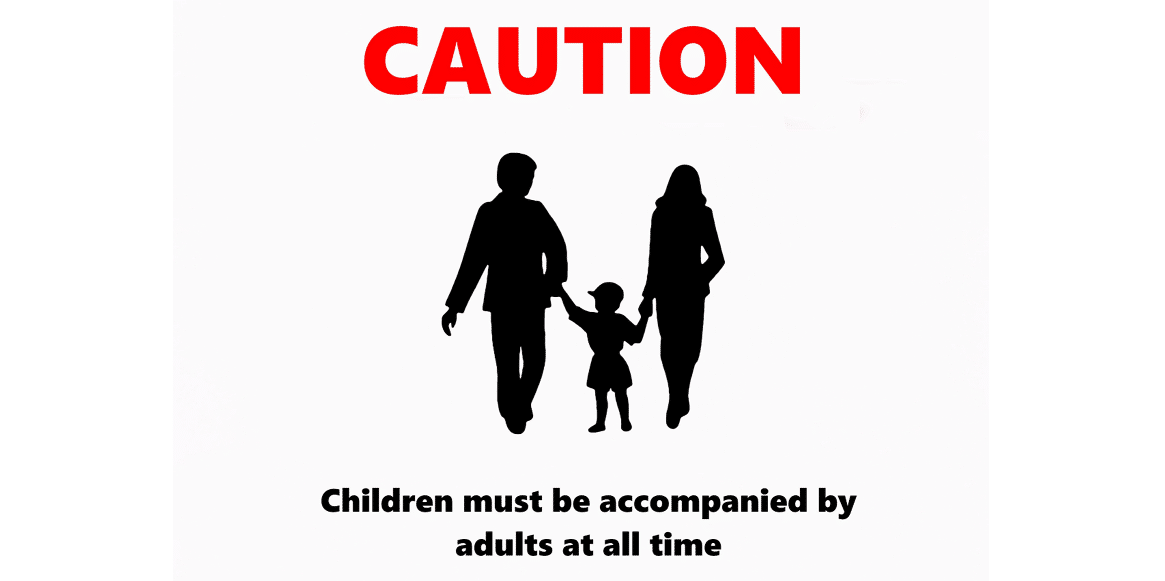ISAACSON LAW BLOG
The Fair Housing Act And Discrimination Based On Familial Status

The Fair Housing Act And Discrimination Based On Familial Status
Homeowners and Board Members are understandably concerned about the well being of children within their community. Often, they see kids playing in the street or around the entrance gates and notice speeding cars or other hazards. A natural reaction for many Board members is to seek out a new rule which prevents kids from playing in the streets or requires children to have adult supervision. Seems reasonable, but legally can put the Association in a legal quagmire.
The case of Roman v. MSL Capital, LLC, No. EDCV 17-2066 JGB (SPx), 2018 U.S. Dist. LEXIS 196427 (C.D. Cal. Nov. 5, 2018), which involved a rule requiring adult supervision of children at all times. In Roman, the community instituted the following rule:
“Supervision: All children under age 14 must be supervised by adults 18 years or older while on the premises. Residents who fail to supervise their children are subject to eviction. Premises include, but are not limited to common areas, grounds, etc.”
Roman v. MSL Capital, LLC, No. EDCV 17-2066 JGB (SPx), 2018 U.S. Dist. LEXIS 196427, at *7 (C.D. Cal. Nov. 5, 2018).
HUD took issue with the rule asserting that a requirement of constant parental supervision of all minors, and even teenagers, is oppressive, unnecessary, and unfairly burdensome on families with children, and that the Fair Housing Act (“FHAct”) protects the rights of families with children to enjoy the same housing amenities that others do.
Though a community may have the best of intentions, unless it qualifies under the Housing for Older Persons Act of 1995, it may not discriminate based on familial status. In this regard, the FHAct prohibits discrimination based upon familial status. 42 U.S.C. § 3604(b). This means that no manager, Board Member, homeowners’ association or any other housing provider can create or enforce rules that may be discriminatory to families with children. Bischoff v. Brittain, 183 F. Supp. 3d 1080, 1088 (E.D. Cal. 2016), citing Fair Hous. Cong. v. Weber, 993 F. Supp. 1286, 1290 (C.D. Cal. 1997).
When evaluating rules requiring adult supervision, several courts have found that policies toward unsupervised young children inherently treat children differently than adults by limiting when they may use the common areas to when supervised by an adult. Id.; see also Iniestra v. Cliff Warren Investments, Inc., 886 F. Supp. 2d 1161, 1166 (C.D. Cal. 2012) (finding that adult supervision rules “explicitly discriminate against children by requiring that they—unlike adults—be supervised by an adult at all times”). Accordingly, rules which require adult supervision or are targeted against children alone are prima facia violations of the FHAct. Courts are equally suspicious of any rules that restrict the ability of children to use portions of the common area facilities.
Where a prima facie case of discrimination exists (a case in which the evidence produced is sufficient to enable a decision or verdict to be made unless the evidence is rebutted), the Association can attempt to justify the unequal treatment by demonstrating that: (1) “the restriction benefits the protected class,” or when (2) “it responds to legitimate safety concerns raised by the individuals affected, rather than being based on stereotypes.” Id. at 1090. In cases such as Bischoff, the courts have held that while an association may adopt rules that are entirely well meaning in their purpose, but are based largely on unfounded speculation, they will not be permitted.
However, some cases have permitted the adoption of rules restricting the use of common area facilities. For example, in Fernandez v. Kastes, Case No. 04-89-0350-1 (Jan. 9. 1990), HUD found no reasonable cause to believe discrimination had occurred when an apartment complex prohibited children under 18 from using any of the three swimming pools in the complex, unless they were accompanied by a parent. In Fernandez, HUD’s General Counsel determined that because one pool, which was only a few feet from the buildings, had an unusual design with sharp edges and corners, was not fenced, and because there was no lifeguard at any of the pools, the danger the association perceived was real and the rule was a reasonable means to provide for the health and safety of all residents – not just children. Further, HUD concluded that the rule had not discouraged families with children from living in the community, as families with children occupied about two-thirds of the units.
Where specific problems do exist, narrowly tailored rules will be permitted to protect the health and safety of children. When adopting such rules, associations must establish the rules constitute a compelling business necessity and that they have used the least restrictive means to achieve that end. United States v. Plaza Mobile Estates, 273 F. Supp. 2d 1084, 1091 (C.D. Cal. 2003). Generalized concerns about safety will not excuse discrimination. See HUD v. Edelstein, Fair Housing-Fair Lending 25,018 (Initial Decision and Order, Dec. 9, 1991) (“As a general rule, safety judgments are for informed parents to make, not landlords.”). Similarly, generalized safety concerns over elevators, stairs, balconies, and large windows were an insufficient defense to an FHAct claim arising from a policy of restricting families with children to a building’s first floor. HUD v. Rowland, HUDALJ 09-91-1200-1 (Nov. 5, 1991). Therefore, to the extent a community seeks to adopt rules prohibiting children of certain ages from use various common-area facilities, it is suggested that the specific safety concern or other basis for the restriction be articulated within the rule.
Other recommendations for adopting rules are:
- Do not use the word children or ages in any rules. Rules that apply to residents regardless of age are nondiscriminatory.
- Make sure the rules serve a legitimate business purpose and use the least restrict means possible. For example, the Center for Disease Control advises that children under age five should not use hot tubs. Instead of banning children under five, post a sign with the CDC’s recommendation as to inform parents of the danger and potentially require parental supervision for children under five.
- Make rules neutral in their intent and even-handed in their impact by targeting behaviors, not groups of people. For example, if the community is concerned about noise, prohibit noise in the common areas; do not put a prohibition on children playing. If the community seeks to restrict children playing ball in the common area or riding bikes in the street, prohibit ball-playing and bike riding by anyone – not just children.
- Where adults complain that children make too much noise or take up too much space in the swimming pool, remind them that they cannot expect the same environment in a condominium community that they would find in a detached, single-family homes. Where people share walls and amenities with others, they are going to see and hear their neighbors. It is reasonable to expect all residents, including children, to be considerate of others and to obey the community’s rules. It is neither reasonable, nor legal, to require children to be seen (only during designated times) and not heard.
If your community is facing questions over rules and the applicability of certain laws, such as the FHAct, please call Troy Isaacson at (702) 529-2559 to see how he can help.

LOCATION
- (702) 529-2559
- 4730 S. Fort Apache Rd, Suite 280 Las Vegas, Nevada 89147
BUSINESS HOURS
Monday – Friday: 8:30am to 5:30pm
Recent Blog Posts

Legislative Session 4-20-25

Legislative Session 3/15/25



